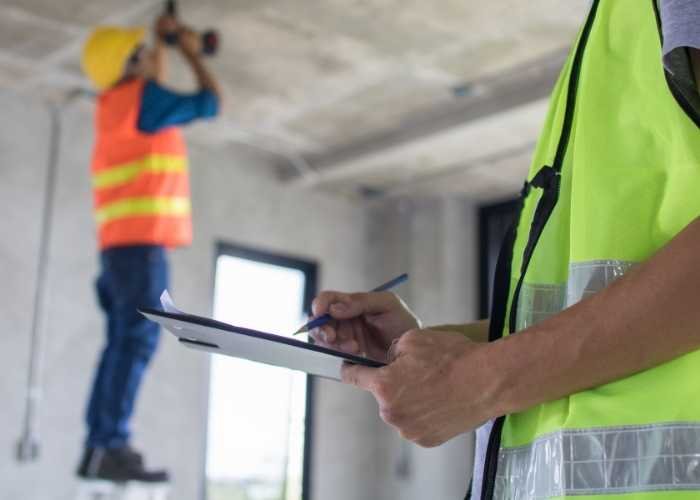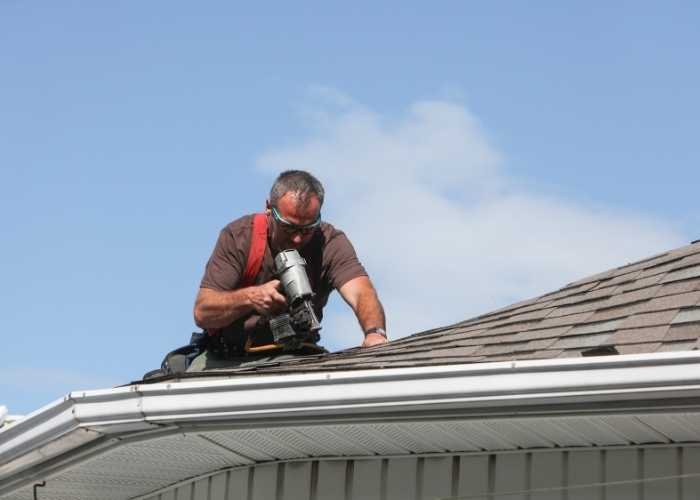Durable & Energy-Efficient Rubber Roofing Solutions
Jacksonville Roofworx specializes in rubber roofing services in Jacksonville, NC, offering high-performance, long-lasting roofing systems for both residential and commercial properties. Whether you need rubber roof installation, repairs, or a full replacement, our experienced team provides top-tier roofing solutions built for durability, weather resistance, and energy efficiency.
With the rising popularity of EPDM rubber roofing (ethylene propylene diene monomer), more property owners are choosing this cost-effective, UV-resistant, and fire-resistant material for flat and low-slope roofs. If you’re planning to upgrade your roofing system or need a professional inspection, contact us today for a free estimate.
What Is Rubber Roofing?
Rubber roofing is a synthetic, long-lasting material created from recycled materials like rubber tires, slate dust, and EPDM polymers. This roofing solution is known for being energy-efficient, UV-resistant, and weatherproof, providing reliable protection from leaks, high winds, and fire hazards.
While rubber roofing has been widely adopted for commercial buildings, it’s now a popular choice for residential homes as well, especially for low-slope and flat roof systems, thanks to its affordability, longevity, and sustainability.

Benefits of Rubber Roofing
1. Long-Lasting Durability
EPDM roofs can last 30 to 50 years with minimal upkeep. Unlike shingles, which crack and deteriorate, rubber roofs remain flexible, resisting damage from UV rays and extreme temperatures.
2. Energy Efficiency & Cost Savings
Rubber roofing reflects heat, helping to reduce cooling costs. A rubber roof coating deflects ultraviolet radiation, improving the building’s overall energy performance.
3. Environmentally Friendly & Recyclable
Made from recycled tires and rubber-based materials, EPDM is a sustainable option. At the end of its lifespan, it can also be recycled, minimizing environmental waste.
4. Low Maintenance & Leak Prevention
These roofing systems are resistant to cracks, splits, and leaks. Even if damaged, rubber roofs are easy and inexpensive to repair, requiring only small patches in most cases.
5. Fire & Weather Resistance
Rubber roofing is naturally fire-resistant and offers strong resistance against hail, heavy rainfall, and harsh seasonal changes, making it a solid choice in North Carolina’s climate.

Our Rubber Roofing Services in Jacksonville, NC
1. Rubber Roof Installation
We specialize in EPDM rubber roof installation for residential and commercial properties. Our team ensures:
- Precision installation using durable rubber membranes
- Watertight, seamless protection for flat and low-slope roofs
- Custom solutions tailored to your property’s structure
2. Rubber Roof Repair & Replacement
If your rubber roof is damaged or leaking, we offer quick and cost-effective repairs. For older roofs, we also provide full replacements using advanced rubber materials that maximize durability and longevity.
3. Rubber Roof Coatings & Maintenance
We apply rubber roof coatings that shield your roof from UV damage and weather wear. Routine maintenance can extend your roof’s lifespan significantly, keeping it in top condition for decades.
4. Residential & Commercial Rubber Roofing
Whether for homes, offices, warehouses, or retail properties, we handle rubber roofing installations and repairs for both residential and commercial buildings with low-slope or flat roof designs.
Why Choose Jacksonville Roofworx for Rubber Roofing Services?
Experienced Roofing Contractor –
Our team is fully trained in modern rubber roofing systems.
High-Quality Materials –
We use top-rated EPDM membranes for lasting performance.
Licensed & Insured –
Fully certified to serve clients across Jacksonville, NC.
Competitive Pricing & Free Estimates –
Honest pricing and no-obligation quotes.
Local Experts –
Serving Jacksonville and surrounding areas with a reputation for reliable roofing services.
Frequently Asked Questions (FAQs) About Rubber Roofing
1. How long does a rubber roof last?
30 to 50 years, depending on the installation quality and maintenance frequency.
2. Is rubber roofing suitable for residential homes?
Yes. It’s a great option for homes with flat or low-slope roofing systems.
3. What is the cost of installing a rubber roof?
Typically ranges from $4 to $10 per square foot, based on size, material, and labor.
4. How does rubber roofing compare to asphalt shingles?
Rubber roofing is more durable, weather-resistant, and energy-efficient, lasting longer than typical 15–30 year asphalt shingles.
5. Can rubber roofs be repaired easily?
Absolutely. Most damage can be patched affordably with long-lasting results.
6. Do rubber roofs require maintenance?
Minimal maintenance is needed, but annual inspections are recommended to catch early signs of wear.
7. Is a rubber roof energy-efficient?
Yes. Rubber roofing reflects heat and reduces the need for air conditioning.
8. Do you offer emergency rubber roof repairs?
Yes. We provide fast-response emergency services for leaks and storm damage.
9. What is a rubber roof installation, and how does it compare to other materials?
Rubber roofing involves installing a single-ply EPDM or TPO membrane, which is more flexible and resistant to UV than traditional materials like asphalt.
10. How do rubber shingles differ from asphalt shingles?
Rubber shingles last longer, resist fire and moisture, and are made from recycled materials, offering better long-term value.
11. What are the advantages of using rubber roofing in Jacksonville’s climate?
Rubber shingles last longer, resist fire and moisture, and are made from recycled materials, offering better long-term value.
12. Is a rubber roof fire-resistant?
It provides:
- Superior waterproofing
- UV resistance
- Thermal flexibility during extreme seasonal changes
13. How does the lifespan of a rubber roof compare to other systems?
Yes. Rubber roofs are fire-retardant and meet fire safety standards.
14. What are the benefits of a rubber roof coating?
Rubber: 30–50 years
Asphalt: 15–30 years
Rubber also needs fewer repairs and less maintenance over time.
15. Can a rubber roof be installed over an existing roof?
- UV protection
- Enhanced waterproofing
- Improved energy efficiency
16. What maintenance does a rubber roof need?
In many cases, yes—as long as the current roof is in stable condition. We’ll assess your roof to ensure it’s a good candidate.
What maintenance does a rubber roof need?
- Annual inspections
- Re-coating every few years
- Removing debris and standing water
17. Are rubber roofs suitable for both residential and commercial properties?
Yes. They are ideal for both homes and businesses, especially with flat or low-slope roofs.
18. Is TPO roofing the same as EPDM?
No.
- EPDM is flexible and long-lasting
- TPO is more reflective and better at seam bonding
We can help you choose based on your needs.
19. How do rubber roofs compare to metal roofing?
- Rubber is cooler and more flexible
- Metal is rigid and often more expensive
- Rubber is easier to install on large flat roofs
20. Can rubber roofing be customized for different building styles?
Yes. We offer rubber shingles, membranes, and coatings for various designs.
21. How can I get an estimate for rubber roofing?
Contact us today. We’ll inspect your roof and provide a tailored estimate.
Contact Us Today for Expert Rubber Roofing Services in Jacksonville, NC
If you’re considering rubber roof installation, need repairs, or want a full replacement, Jacksonville Roofworx is your local roofing expert. We offer durable, energy-saving rubber roofing systems tailored to your needs.
Call now or request a free estimate to get started on your rubber roofing project in Jacksonville, NC.
